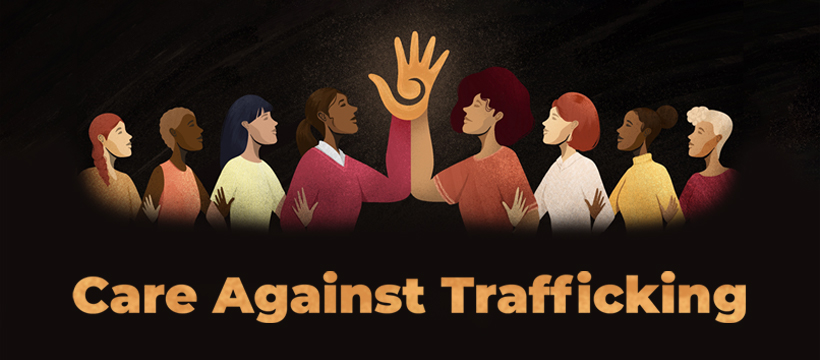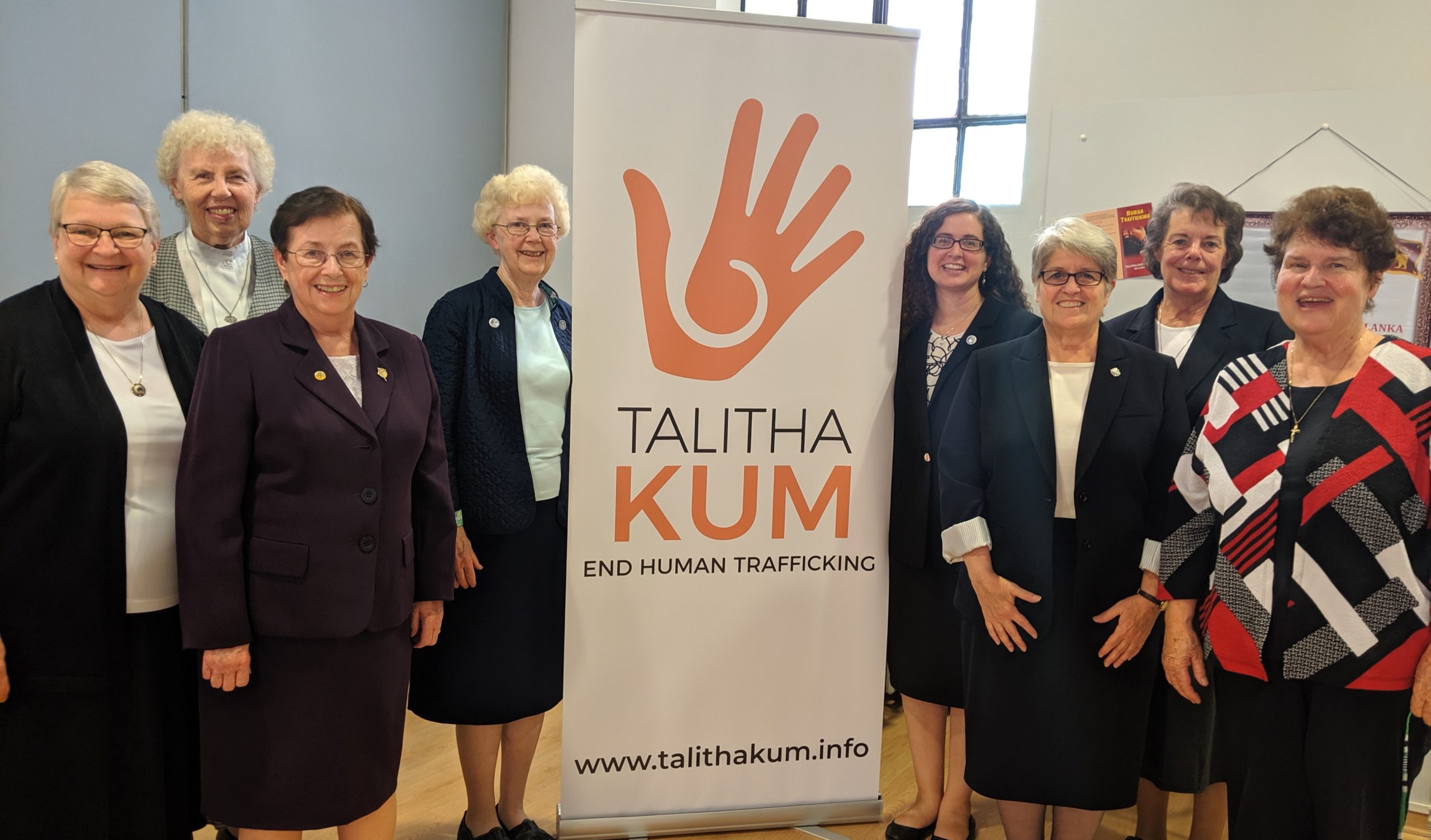Moving from an Economy of Exploitation to an Economy of Care
July 30, 2021By Jennifer Reyes Lay, Executive Director of AEHT
 In the 2019 General Assembly of Talitha Kum for its 10th anniversary, over 50 networks of women religious working to end human trafficking throughout the world gathered to set priorities for the coming years. In reflecting on the realities of human trafficking around the world, three priority root causes were identified as crucial to our work to change the cultures and systems that support and fuel this criminal enterprise. Those three priorities are: 1) The power differential between men and women in all sectors; 2) The dominant model of neo-liberal development and unfettered capitalism; and 3) Unjust and inadequate immigration law and policy coupled with forced migration and displacement.
In the 2019 General Assembly of Talitha Kum for its 10th anniversary, over 50 networks of women religious working to end human trafficking throughout the world gathered to set priorities for the coming years. In reflecting on the realities of human trafficking around the world, three priority root causes were identified as crucial to our work to change the cultures and systems that support and fuel this criminal enterprise. Those three priorities are: 1) The power differential between men and women in all sectors; 2) The dominant model of neo-liberal development and unfettered capitalism; and 3) Unjust and inadequate immigration law and policy coupled with forced migration and displacement.
This past year The Alliance to End Human Trafficking, along with our Talitha Kum sister networks throughout the world, have been focused on the second priority: the dominant economic model of neo-liberal capitalism which has fueled an economy of human trafficking. Together we have been reflecting on how this economic model treats humans and other living beings as commodities to be bought and sold and used for the accumulation of wealth for just a few while the majority suffer. In response, we have been sharing our vision of what an #EconomyWithoutTrafficking would look like and how we can get there.
This July 30th, on World Day Against Trafficking in Persons, we join again with our sister networks throughout the world, led by Talitha Kum, to share how we are already living into this vision of an economy rooted in care and solidarity through our own actions to end human trafficking and support survivors. What does it look like to care against trafficking? It looks like educating others to prevent and recognize the signs of trafficking. It looks like providing housing, education, and counseling services for survivors of trafficking. It looks like advocating for local and national legislation that will protect survivors and hold traffickers and buyers accountable for their crimes. It looks like working to transform systemic injustice which perpetuates human trafficking such as racism, poverty, xenophobia, gender inequality, and environmental destruction.
We invite others to join us in visioning and sharing about how you are living into an economy of care and solidarity by using the hashtag #CareAgainstTrafficking in your social media posts on July 30th. And we call on those in positions of power and all people of goodwill to take action to create an economy of care and oppose an economy of exploitation and trafficking.
In Talitha Kum’s statement announcing this campaign they state: “On World Day Against Trafficking In Persons, we ask our networks and partners to stand together and amplify our efforts to transform the economy of trafficking into an economy of care that empowers everyone, and especially women, to foster safe and thriving communities. Today, we call on all people of good will to come together and tackle the systemic causes of human trafficking. We call on governments to commit to long-term support for survivors, including quality education, work permits, access to justice and compensation, and medical and psychosocial assistance. Today, we declare that caring is the most powerful force for change, and we unite with survivors to care against trafficking.”
We believe in a world without slavery and exploitation, where the dignity of every person is honored and recognized, and where all are free to use their God-given gifts and talents to make the world a better place. And we believe it will take all of us, working together, to realize that vision together. We hope you will join us not only on July 30th, but every day, until all are free.

Category: The Alliance to End Human Trafficking

